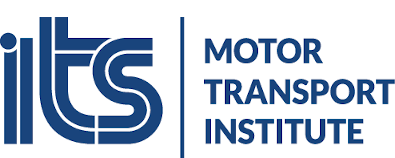|
Transport Telematics Centre (TTC) conducts scientific research, promotional and expert work in the field of:
- development of autonomous and automated driving systems in road transport,
- driver's testing using driving simulators and eye-tracking devices,
- development of methods for monitoring the condition and behaviour of drivers,
- assessing the behaviour of road users,
- development of research and training driving simulators,
- evaluation and validation of human-machine interfaces (HMI),
- modern telecommunications, IT, and electronic technologies used in road transport systems (Intelligent Transport Systems),
- standardisation and normalization in the field of Intelligent Transport Systems,
- expert assessment of Intelligent Transport Systems and their components,
- ICT systems for electric vehicles (e.g. pseudo-intelligent energy management), modern transport infrastructure, vehicle-to-vehicle (V2V) and vehicle-to-infrastructure (V2I) data transmission systems,
- experimental road markings and signs,
- methodology of psychological testing of drivers, test standards and rules of judicature,
- preparation of methodological materials which form the basis for transport psychologists training,
- creating educational and re-educational programs for drivers and candidates for drivers as well as candidates for instructors and examiners.
In addition, the activities of the Centre concern:
- organization of seminars, trainings, and scientific conferences,
- co-organization of post-graduate studies for transport psychologists and diagnosticians,
- active participation in the initiatives for education and changing dangerous attitudes of drivers and other road users - participation in social campaigns,
- conducting psychological tests of drivers and candidates for drivers,
- assistance to road accidents victims (participants, perpetrators, families of the victims),
- substantive assistance to the existing and newly emerging psychological driver testing laboratories.
The above thematic scope of the Centre’s operation is carried out by four Laboratories:
1. Laboratory of Autonomous Vehicles:
- studies of autonomous systems for road transport,
- analyses for the needs of the implementation of autonomous driving systems in Poland,
- cooperation with the manufacturers of systems and components used for transport automation,
- analyses of technology development and trends related to intelligent mobility,
- promotional activities for increasing awareness, social acceptance, and safe implementation of autonomy systems for road transport,
- tests of the road infrastructure in connection with the implementation of autonomous vehicles,
- organizational and research&development support for the Competence Centre for Autonomous and Connected Vehicles.
2. Transport Psychology and Driving Simulators Laboratory:
- research in the field of transport psychology,
- studies on the behaviour of drivers in simulation conditions,
- testing of in-vehicle devices, including man-machine interfaces, using high-end driving simulators,
- organizing training and social campaigns in the field of transport psychology,
- preparation of analyses, opinions, and expertise in the field of transport psychology,
- development of IT used in testing and training of drivers.
3. Laboratory of Intelligent Transport Systems:
- testing Intelligent Transport Systems elements,
- opinions and expertise in the field of Intelligent Transport Systems,
- maintaining infrastructure and databases for the needs of the Road Carriers Certification process,
- use of elements of Intelligent Transport Systems for the implementation of the Smart Cities concept,
- popularisation of knowledge in the field of transport activities,
- operating the IT systems supporting transport activities.
4. Laboratory of Economics and Accessibility of Transport:
- monitoring of the transport market,
- research: operating costs of transport companies, haulage work, the market situation in selected transport sectors and car fleet,
- analysis of transport accessibility as well as forecasts and proposed solutions in this area,
- analysis of trends and business models in the field of transport and mobility, including the importance of electrification, automation, and sharing policy (including the development of MaaS - Mobility as a Service),
- evaluation of the effects of legislative and organisational changes in the field of transport and mobility.
Selected projects of the Transport Telematics Centre
|

